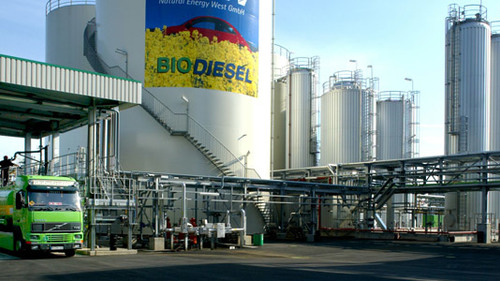Evonik expands its global capacity for VESTAMID® E polyether block amide (PEBA) at Shanghai and Marl, Germany
Shanghai - Evonik is doubling its global capacity for VESTAMID® E, polyether block amide (PEBA), with a twofold approach including a major expansion of its production plant at the Multi-User-Site (MUSC) in Shanghai, and an optimization project at its production facility in Marl, Germany. Construction at the Shanghai site starts in Fall 2023 and will increase the company’s ability for the polymerization of PEBA, a key step in producing the raw material, which is highly demanded by the global, athletic footwear market.
“As the worldwide footwear production continues to grow, this latest investment in Shanghai will significantly increase Evonik’s PEBA production capacity, expand our regional presence, and put us in an optimal position to address the global market that is centered primarily on local manufacturing in Asia,” says Ralf Düssel, head of Evonik’s High Performance Polymers business line.
Complementing the expansion in Shanghai, several other projects are currently ongoing to eliminate bottlenecks and optimize overall production at Evonik’s other major PEBA facility in Marl, Germany.
Evonik’s VESTAMID® E, is a long-established compound with exceptional qualities that are ideal for use in high-performance athletic shoes. Continuous technological developments have allowed midsoles featuring VESTAMID® E to be extremely lightweight, offering an excellent energy return that enhances the performance of the athlete. In addition to these attributes, VESTAMID® E also exhibits great low-temperature impact strength, excellent chemical resistance and is easy to process and color – making it highly sought after in many demanding applications in the automotive and medical technology industries.
As part of Evonik’s “Next-Generation Solutions” strategy, which has a 2030 goal of having more than 50% of its sales from products with superior sustainability benefits, the company is also placing high emphasis on producing VESTAMID® eCO, which retains all characteristics of a PEBA molding compound. VESTAMID® eCO features a 42 percent lower carbon footprint – it is made using 100 percent renewable energy and has 50 percent of its raw materials based on recycled tires, through a third-party audited, mass-balance approach.
“Constant innovation continues to drive this industry in the improvement of weight reduction, energy efficiency, and environmental sustainability. PEBA-based foams made with VESTAMID® E or VESTAMID® eCO, are leaders in this category and are widely regarded as one of the highest performing materials in the market,” says Ralf Düssel.
With more than 50 years of experience in developing and manufacturing specialty and high-performance plastics, Evonik has a comprehensive product portfolio that offers innovative solutions for virtually any industrial application.
Categories
Investments
2022-01-01
at Marl Chemical Park (DE)Chemical substances
Countries
Companies
Latest news
INEOS launches €250m investment supported by the French Government to secure the future of French industry at Lavera
The project marks the first phase of a long-term regeneration plan to reduce emissions, boost reliability, efficiency and competitiveness, with support of the French State.
Hycamite’s technology to decarbonize shipping awarded AiP by industry leader DNV
Kokkola Industrial Park →Hycamite’s proprietary Thermo-Catalytic Decomposition (TCD) technology offers a new approach to producing clean hydrogen by breaking down methane, the primary component of liquefied natural gas (LN...
Clariant catalysts will power the Ecoplanta: Europe's first waste-to-methanol plant
Chemmed Cluster Tarragona →Repsol is building Europe’s first plant to produce renewable methanol from urban waste The facility will use Enerkem gasification technology to produce 240 KTA of methanol Clariant will supply cata...
Lilly plans to build a new $3 billion facility to boost oral medicine manufacturing capacity in Europe for patients worldwide
Netherlands site will bring 500 manufacturing and 1,500 construction jobs while further strengthening Lilly's global supply chain


